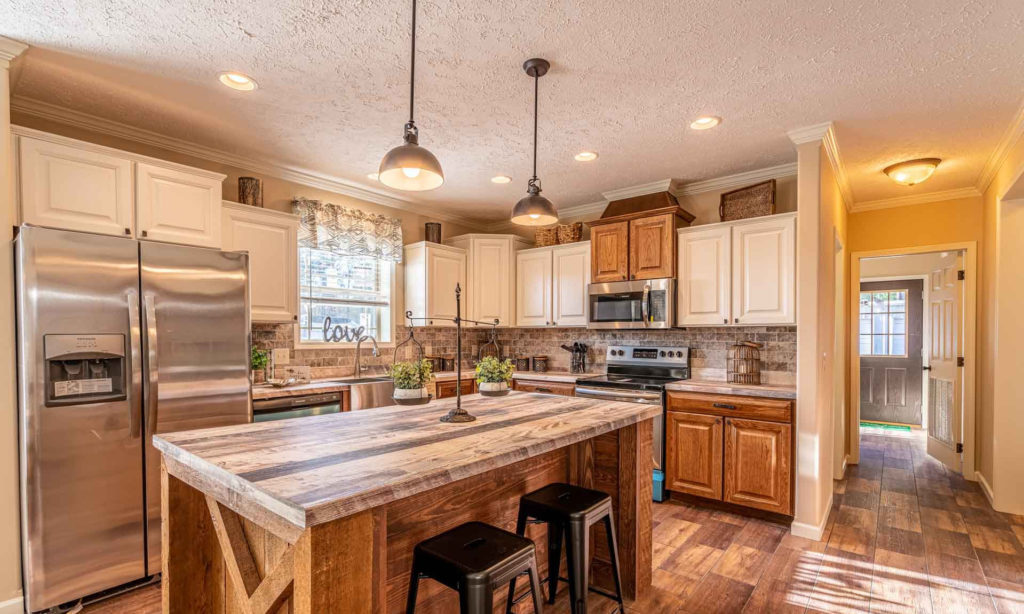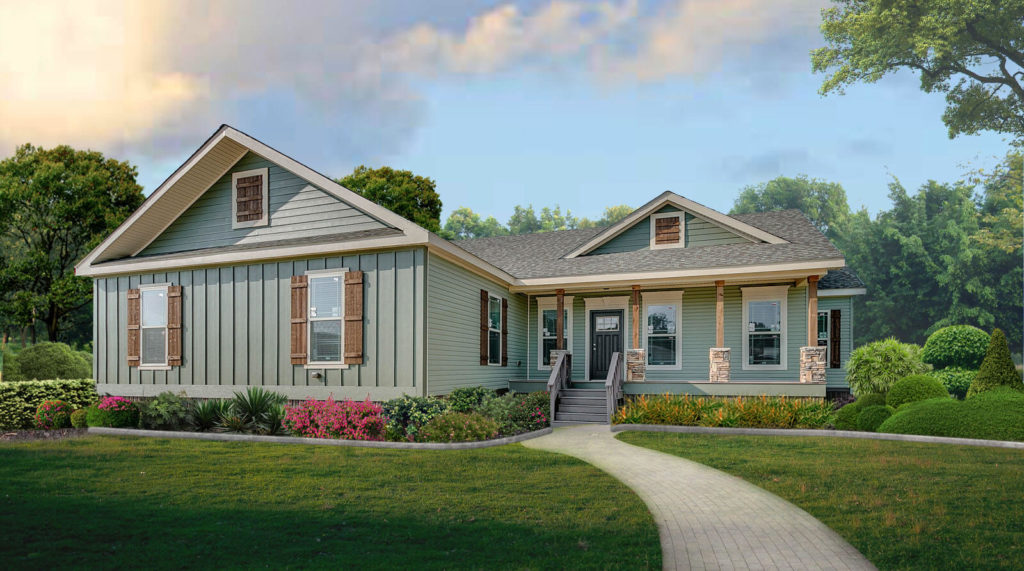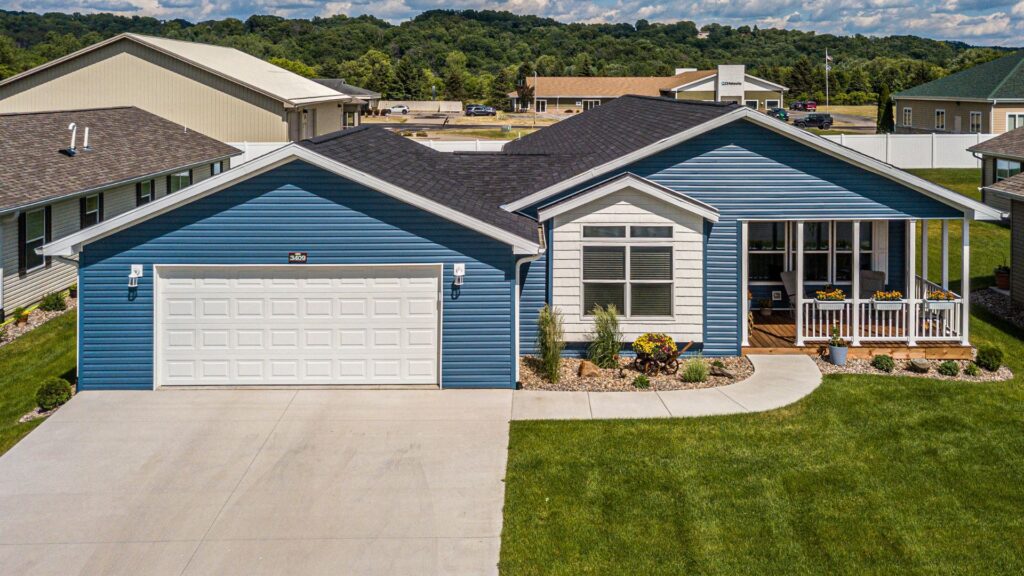Modular homes and mobile homes are often used interchangeably, but are they really the same thing? If you’re in the market for a new home, it’s important to understand the differences between these two types of homes before making a decision.
Modular homes are becoming increasingly popular due to their cost-effectiveness, speed of construction, and customization options. However, there is still some confusion about whether they are considered mobile homes or not.
In this article, we will explore the similarities and differences between modular homes and mobile homes. We will also discuss why it matters which type of home you choose, and what to consider when making your decision.
What are Modular Homes?
Modular homes are a type of prefabricated housing that is constructed offsite in a factory-like environment and then transported to the desired location. They are typically made up of several units that can be connected together to form a complete living space. Modular homes (also referred to as prefabricated homes) are popular because they provide buyers with a number of advantages that traditional site-built homes do not, such as cost savings, faster construction times, and increased customization.
Are Modular Homes Considered Mobile Homes?
No, modular homes are not considered mobile homes. A mobile home is a type of manufactured housing that is built on a single chassis and designed to be towed by a truck or trailer to the desired location. Unlike modular homes, mobile homes are typically limited in size and cannot be customized as easily. Additionally, mobile homes are typically not as energy efficient as modular homes, and they may depreciate more quickly.
You may hear people refer to modern modular homes as “mobile homes” or “trailers”, however, mobile homes and manufactured homes were distinguished from each other in 1974 with the National Mobile Home Construction and Safety Act. This was followed in 1976 by the Housing and Urban Development Manufactured Home Constriction and Safety Standards, which set federal construction standards for manufactured/modular homes.
Key Differences between a Modular Home and Mobile Home
The key differences between a modular home and a mobile home are as follows:
- Modular homes are constructed in a factory-like environment, while mobile homes are built on a single chassis.
- Modular homes are constructed from several units that can be connected together to form a complete living space, while mobile homes typically have limited sizes.
- Modular homes offer buyers more customization options, while mobile homes do not.
- Modular homes are typically more energy efficient than mobile homes.
- Modular homes may appreciate in value over time, while mobile homes may depreciate in value.
- Modular homes are built on permanent foundations and to the same building codes as traditional homes, while mobile homes are not.
Advantages of Modular Homes
Faster Build Time
Modular homes offer buyers the ability to construct their dream homes in a fraction of the time it takes for a traditional site-built home. Because modular homes are built offsite, the build process can be completed much more quickly since there is no need to wait for weather delays or other on-site hiccups. This means that buyers can move into their new homes sooner without sacrificing quality.
Cost Savings
Modular homes are typically more affordable than traditional site-built homes. This is because the entire build process is completed in a factory setting, which eliminates delays and costly labor costs associated with building onsite.
Increased Customization
Modular homes offer buyers the ability to customize their homes in ways that a traditional site-built home cannot. Buyers can choose from a variety of floor plans and materials, such as siding, roofing, and windows, to create the perfect home for their needs. Additionally, modular homes allow buyers to add features like porches or decks, giving them even more control over how they design their homes.
Quality Control
The quality of modular homes is often higher than that of a traditional site-built home due to the factory setting in which they are constructed. This allows for greater control over the build process, with strict regulations and inspections ensuring that each unit meets the highest standards.
Energy Efficiency
Modular homes are often more energy efficient than traditional site-built homes due to the factory setting in which they are constructed. Manufacturers use better insulation and building materials, as well as state-of-the-art construction methods to ensure that each unit is properly sealed and airtight. This helps reduce energy costs over time, making modular homes a great choice for buyers looking for an environmentally-friendly home.
Sturdy Construction
Modular homes are built to be strong and durable, with each unit being constructed in a factory setting and then transported to the site for assembly on a permanent foundation. This helps ensure that all of the materials and components used are of the highest quality, making modular homes a great option for buyers looking for a home with longevity.
They Retain Their Value
Modular homes are built to last, and they often retain their value over time. Because modular homes are constructed in a factory setting and meet the same regional building codes as traditional site-built homes, they can hold up to the test of time better than mobile homes. This means that buyers can expect their modular home to maintain its value over the years, even appreciating it in some cases.
Are Modular Homes Safe in Bad Weather?
Modular homes are some of the safest dwellings to be in during bad weather. They are built using durable materials, such as steel and concrete, that can withstand extreme weather conditions. Additionally, modular homes are built in a factory setting where they undergo rigorous inspections and quality control measures to ensure that each unit is safe and secure. They’re held to the same building standards as site-built homes.
Get Started Today
If you’re interested in learning more about modular homes, contact Family Dream Homes. We’re here to help with any questions you may have!



